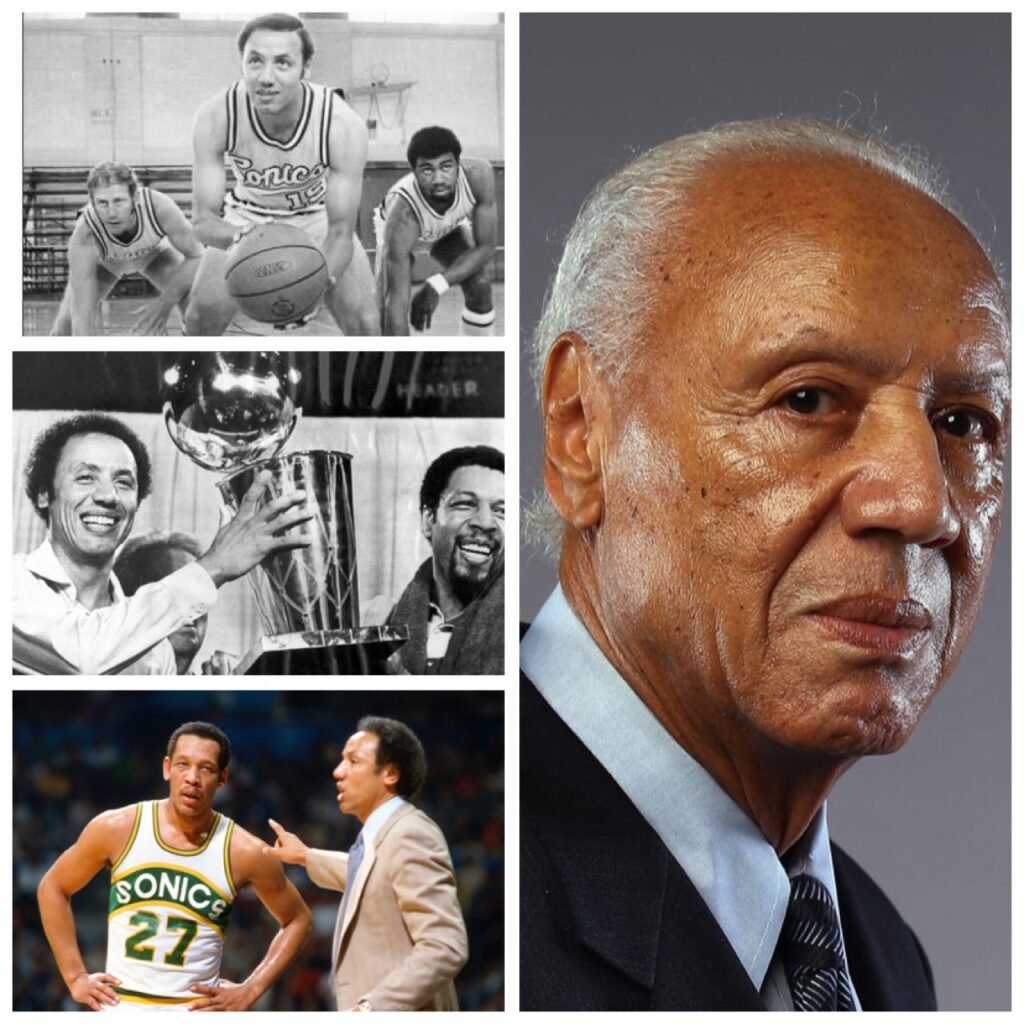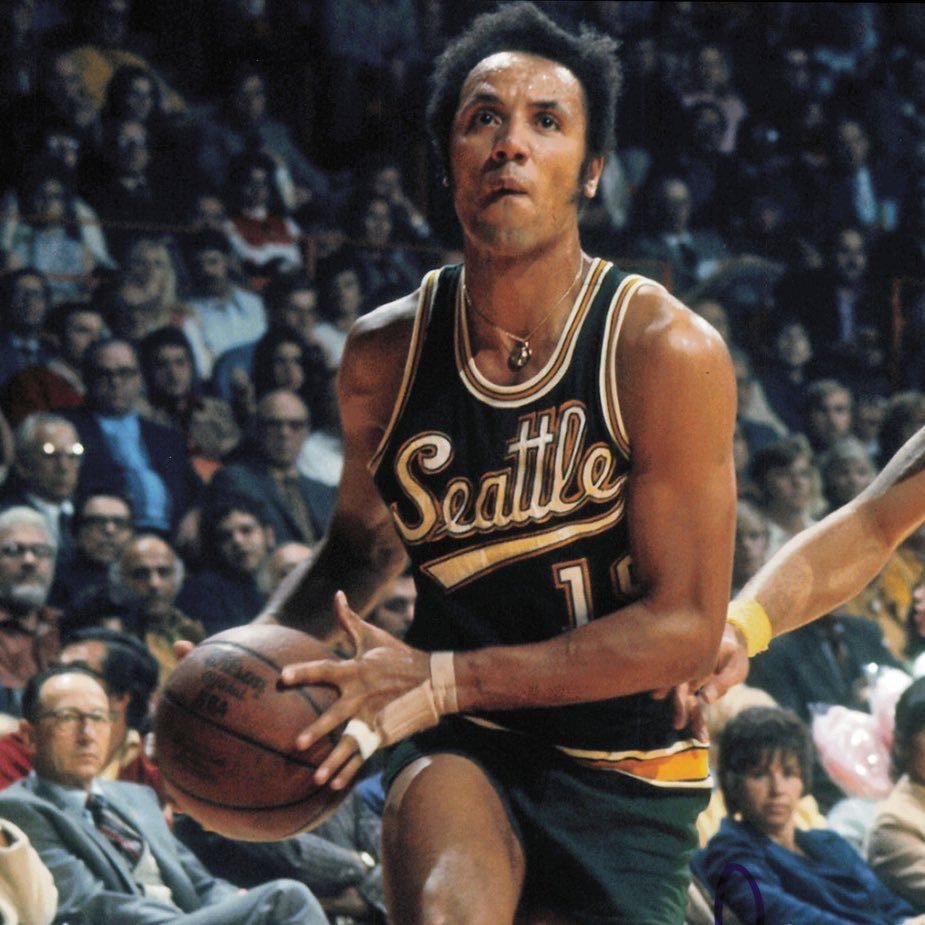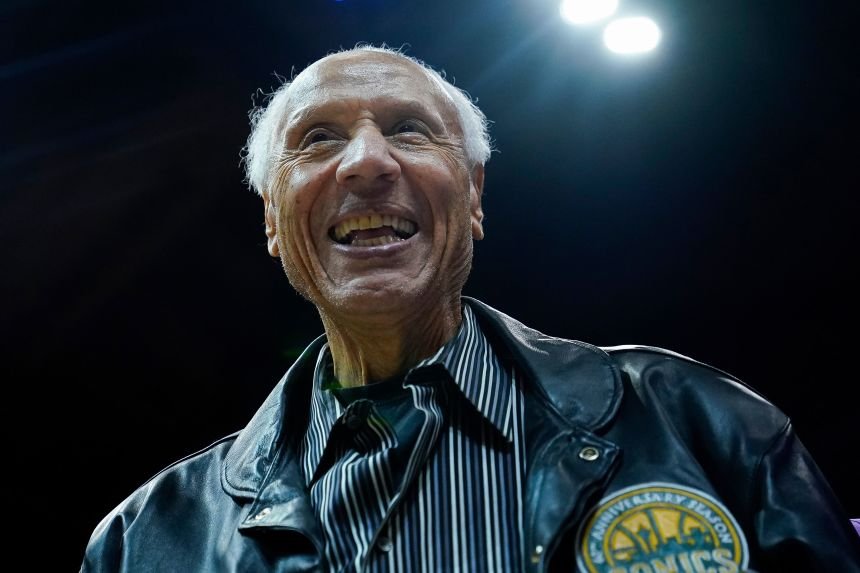It was a quiet Sunday in Seattle, yet the basketball world erupted with grief and memories as news broke: Lenny Wilkens, the legendary Hall of Famer, had passed away at the age of 88. For many, Wilkens wasn’t just a player or a coach he was an icon, a mentor, and the heartbeat of Seattle basketball for decades. Known for his calm demeanor, sharp basketball mind, and dedication to community, Wilkens leaves behind a legacy that stretches far beyond stats and trophies.
Wilkens’ journey began in the streets of Brooklyn, New York, where he learned the fundamentals of basketball on local playgrounds. He honed his craft at Boys High School, sharing the court with major league baseball star Tommy Davis, before moving on to star at Providence College. Drafted sixth overall by the St. Louis Hawks in 1960, Wilkens quickly proved he belonged at the professional level, blending scoring prowess with an unparalleled ability to read the game
A Player Like No Other
Wilkens’ NBA playing career spanned 15 seasons with the Hawks, Seattle SuperSonics, Cleveland Cavaliers, and Portland Trail Blazers. He was a nine time All Star, twice leading the league in total assists, and consistently scored in double figures each season. His best scoring season came with the SuperSonics in 1968-69, where he averaged 22.4 points, 8.2 assists, and 6.2 rebounds. Fans often marveled at his quiet leadership on the floor he never yelled, never demanded attention, yet his impact was undeniable.
In Seattle, Wilkens became a household name, the kind of player who could influence a game without theatrics. When the SuperSonics won the NBA title in 1979, it was not just the result of star talent, but Wilkens’ ability to mold a team, uplift teammates, and lead by example. His statue outside Climate Pledge Arena stands as a reminder of his lasting impact on the city that embraced him wholeheartedly.

From Player to Legendary Coach
Wilkens didn’t just excel on the court; he transformed into one of the NBA’s greatest coaches. He became a player coach for the SuperSonics, taking on dual responsibilities with poise and intelligence. Eventually, he would coach 2,487 NBA games a record at the time and reach 1,000 wins, an unprecedented achievement. He coached teams in Seattle, Cleveland, Atlanta, Portland, Toronto, and the New York Knicks, leaving his signature mark wherever he went.
His coaching was defined by calm strategy rather than fiery outbursts. “Leaders don’t yell and scream,” Wilkens once told Seattle’s KOMO News. That philosophy influenced countless players, including Hall of Famers and rising stars. His legacy wasn’t just about winning games it was about teaching integrity, respect, and professionalism, values that resonated both on and off the court.
International Influence and Olympic Glory
Wilkens’ contributions weren’t limited to the NBA. He served as an assistant coach for the 1992 U.S. Olympic team, part of the legendary “Dream Team,” and led the Americans to gold in 1996. His ability to mentor players on an international stage demonstrated his basketball IQ and charisma, inspiring athletes across the globe. These experiences solidified Wilkens’ reputation as more than a coach he was a true ambassador for the sport.
Adam Silver, NBA Commissioner, praised Wilkens for his influence, noting that beyond accolades and championships, his commitment to service and mentorship left a permanent imprint. From the Odessa Brown Children’s Clinic in Seattle to mentoring young players, Wilkens showed that leadership extended far beyond the hardwood. His dedication to community, education, and development of youth sports embodied the heart of a true role model.

A Career of Milestones and Records
Throughout his career, Wilkens achieved record after record. He was the first person to reach 1,000 wins as an NBA coach and the second person inducted into the Hall of Fame as both a player and a coach. He guided Atlanta to NBA Coach of the Year honors in 1994 and consistently demonstrated the ability to adapt to the ever changing game. From his early days with St. Louis to his final coaching stops, Wilkens’ career was defined by longevity, consistency, and grace.
Fans and players often recall his tactical brilliance and the way he elevated those around him. Steve Kerr, who played under Wilkens from 1989 to 1993, remembers him as “a dignified human being with quiet confidence,” whose wisdom extended far beyond basketball strategy. Wilkens’ life was an example of how sports could build character, instill values, and create lasting memories for generations.
The Personal Side of Lenny Wilkens
Outside the spotlight, Wilkens was a devoted family man. He leaves behind his wife, Marilyn, their children Leesha, Randy, and Jamee, and seven grandchildren. His home in Seattle became a hub for community service and mentorship, where young athletes could learn from one of the game’s true legends. Wilkens’ humility, patience, and kindness were as remarkable as his basketball accomplishments, and these traits made him universally respected.
He continued to impact Seattle long after retirement, running his foundation and actively supporting the Central District through initiatives like the Odessa Brown Children’s Clinic. His commitment to giving back exemplified the broader purpose he saw in life to help others succeed and leave the world better than he found it.

Remembering the Godfather of Seattle Basketball
The news of Wilkens’ passing brought tributes from every corner of the NBA. From former teammates to current stars, all recognized the profound impact of his life and work. Seattle lost more than a coach or a player the city lost a father figure, a mentor, and a guiding light in its basketball history. His influence on the NBA, on international basketball, and on the lives of countless young athletes ensures that his legacy will endure far beyond his years.
Lenny Wilkens’ story is one of excellence, integrity, and humanity. He reminds us that greatness isn’t only measured by victories or awards, but by the lives you touch and the inspiration you leave behind. In Seattle, in the NBA, and in the hearts of basketball fans everywhere, Wilkens will always remain a legend.